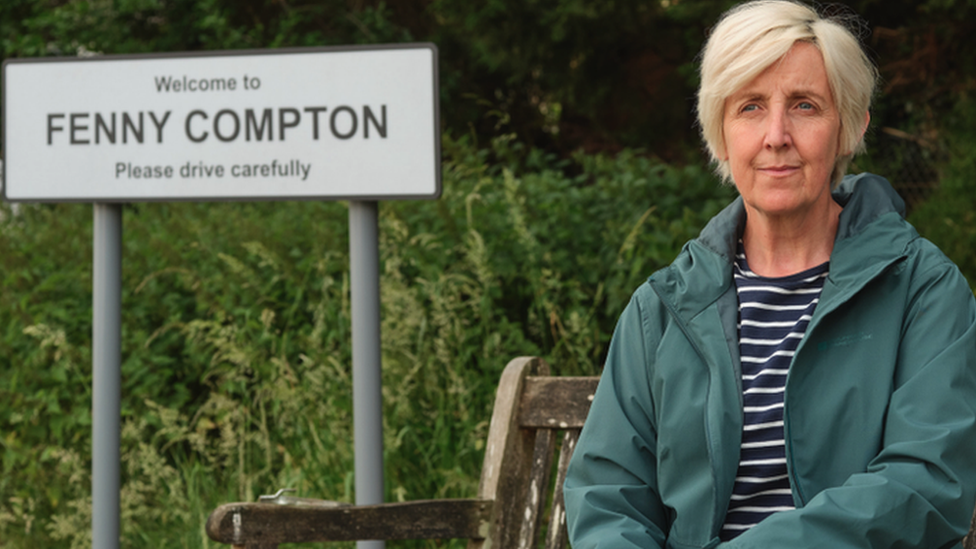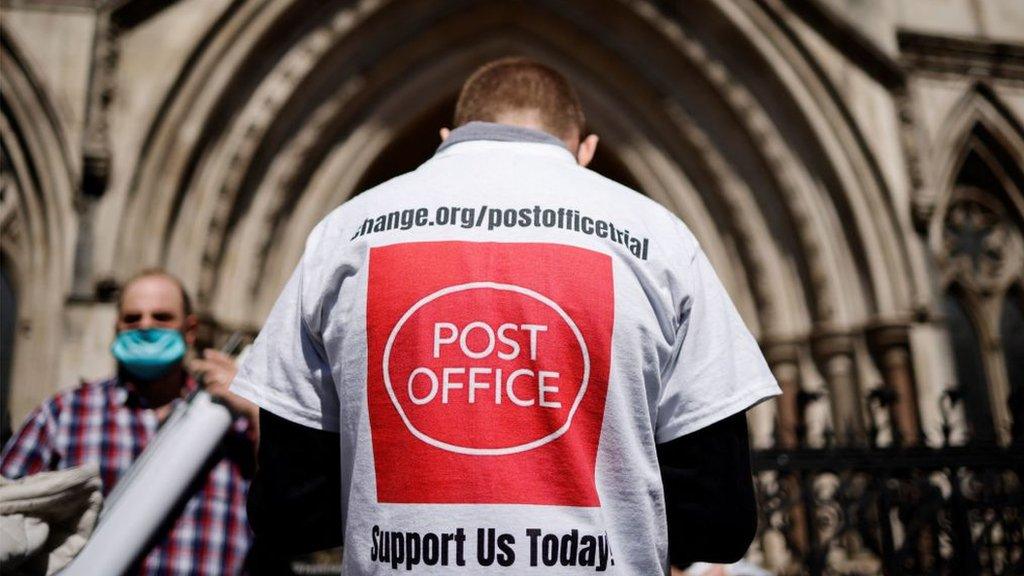What are the different Post Office compensation schemes?
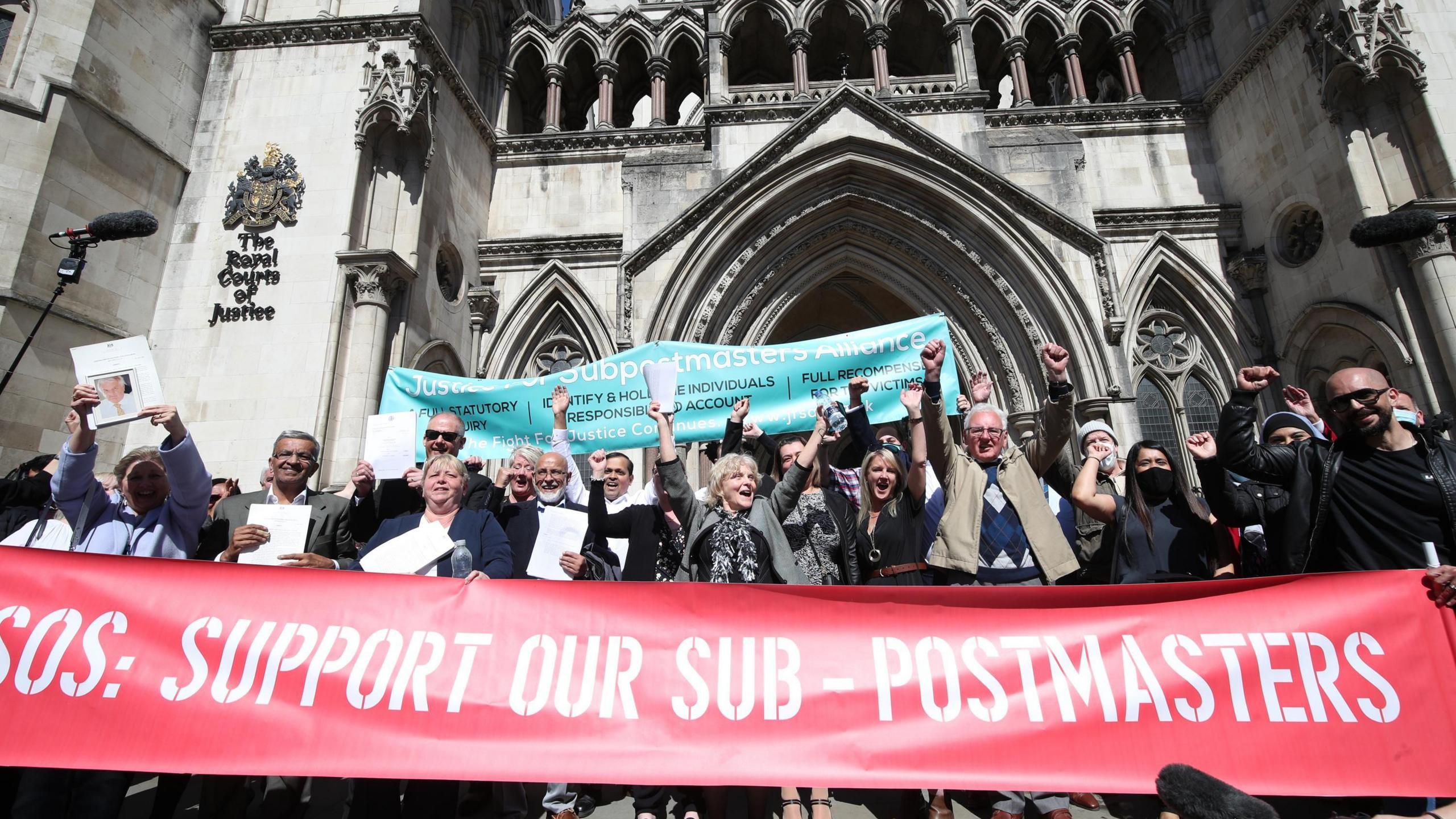
- Published
More than a billion pounds has now been paid out in compensation to victims of the Post Office Horizon IT scandal, according to new government figures.
A total of £1.098bn has been awarded to just over 7,900 sub-postmasters across all four redress schemes, the latest monthly figures show.
Post Office Minister Gareth Thomas said: "We are settling cases every day and getting compensation out more quickly for the most complex cases, but the job isn't done until every postmaster has received fair and just redress."
But the schemes postmasters need to access to get their redress can be long-winded and complicated.
We've broken down how they work.
What are the main compensation schemes?
There isn't a single compensation scheme for sub-postmasters to apply to, and individual eligibility will depend on the particular circumstances of an individual's case.
The four main schemes are aimed at groups of victims who had different experiences of the scandal. They are explained in more detail in the following sections.
Which scheme is available to Alan Bates and others depicted in the ITV drama?
Alan Bates led a group of 555 sub-postmasters in a landmark court case against the Post Office, which came to wider public attention after it was depicted in an ITV drama.
While the cohort secured a £42.5m settlement in 2019, the huge costs of going to the High Court meant each claimant received a relatively low compensation payout at the end of it.
The Group Litigation Order (GLO) scheme was set up to ensure they received extra money to reflect the gravity of their situations. The scheme is funded and managed by the government.
As of 30 June 2025, £177m has been paid under the scheme, including interim payments.
Of the 555 members of the GLO group, 63 had criminal convictions and therefore are not eligible for this scheme but they are eligible for other compensation - depending on how their convictions are overturned.
If they are quashed by the court, they can apply to the Overturned Convictions Scheme. If they are overturned under legislation - the Post Office (Horizon System) Offences Act 2024 which became law in May - they can go to the newer Horizon Convictions Redress Scheme.
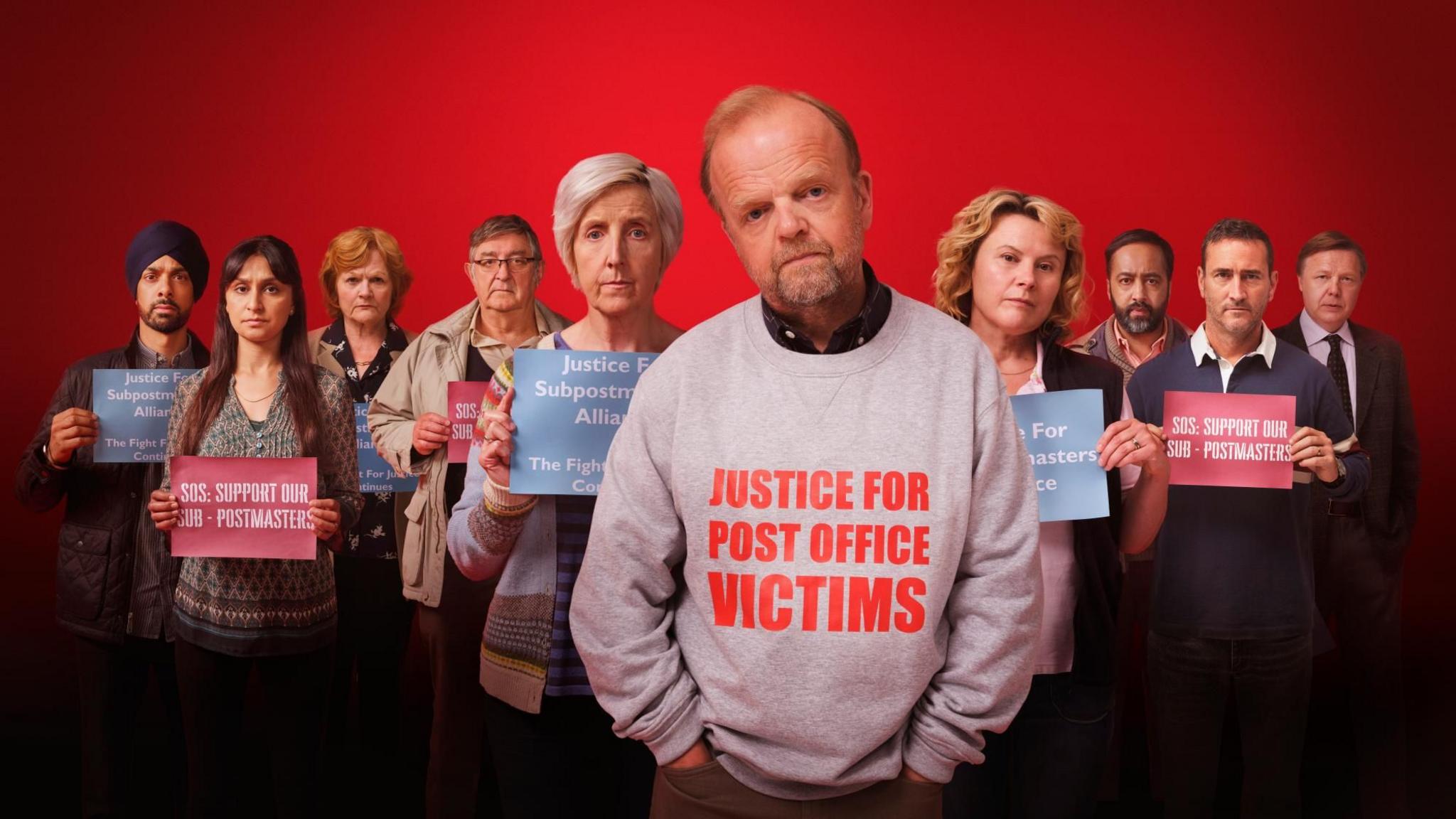
ITV's 2024 drama Alan Bates vs The Post Office introduced millions to the long-running scandal
What compensation is there for people with overturned convictions?
There have been 992 convictions - 700 of which were privately initiated by the Post Office - linked to the faulty Horizon IT programme.
People whose convictions were quashed were able to apply to the Overturned Convictions Scheme, whether or not they are in the GLO group. It is this scheme that the government took over responsibility for from the Post Office and it has now closed.
A total of £68m was paid out under this scheme prior to its closure.
The government introduced a new law last year that overturned all convictions linked to the scandal resulting in hundreds more people becoming eligible for redress.
For those people whose convictions were overturned by the new legislation, they can register for the Horizon Convictions Redress Scheme.
They can choose to take a fast-tracked £600,000 settlement or they can enter into negotiations if they feel they are entitled to more.
All eligible people are entitled to an "interim" payment while their final settlements are processed. This scheme is also overseen by the government.
As of 30 June, £252m has been paid out under this scheme, including further interim payments.
More on the Post Office scandal
What about sub-postmasters who weren't convicted?
The Post Office scandal goes far beyond the original GLO court case and the people who wound up with criminal convictions.
Fearing prosecution, some sub-postmasters poured their own savings into their businesses to make up losses that were incorrectly calculated by the computer programme.
The Horizon Shortfall Scheme, set up to provide redress for those sub-postmasters who were not convicted or part of the GLO court action, first opened in May 2020 and has since paid out £601m to more than 7,000 sub-postmasters.
In September, the Labour government announced a new independent appeals process system called the Horizon Shortfall Scheme Appeals (HSSA) process to help HSS claimants who feel their settlements did not reflect the true extent of their losses and trauma.
Many victims have complained about being forced to accept low offers of compensation, without the benefit of legal advice.
The HSS is administered by the Post Office but the independent appeals process will be overseen by the Department for Business. Post Office Minister Gareth Thomas has said he is still considering whether to transfer the HSS scheme to the government as well.
It has received 9,887 eligible claims so far, according to data from the Department for Business and Trade.
What about people who died before receiving compensation?
On 10 January 2024, the then-Post Office Minister Kevin Hollinrake told the House of Commons the families of the 60 people who died before receiving any compensation would be able to apply for it in their place.
What about people who had problems with the system before Horizon?
A compensation scheme has now been set up for those who fell victim to problems with the Post Office IT system that was in place before Horizon.
The Capture system was used in Post Office branches between 1992 and 2000, but the government has said it was "faulty" and has announced a Capture Redress Scheme for those who lost out.
The scheme is expected to open for applications in autumn 2025, with an initial roll-out of 150 claimants.
Claims will be reviewed by an independent panel of experts, who will assess each case and recommend how much compensation should be paid.
Families of deceased sub-postmasters are also eligible to apply on their relatives' behalf.
How much compensation has been paid out so far?
As of 30 June 2025, external, approximately £1.098bn has been awarded to just over 7,900 sub-postmasters across all four redress schemes. That total breaks down as:
Horizon Shortfall Scheme - £601m
Group Litigation Order Scheme - £177m
Overturned Convictions Scheme - £68m
Horizon Convictions Redress Scheme - £252m
The amount an individual sub-postmaster receives can vary greatly depending on the circumstances of their case.
Prof Chris Hodges, chair of the the independent Horizon Compensation Advisory Board, told the BBC compensation payments that have been made so far range from £10,000 to "well over £1m".
The government has not provided an estimate for how much compensation will be paid out in total, but it will inevitably run into the hundreds of millions on top of what has already been paid.
Related topics
- Published10 January 2024
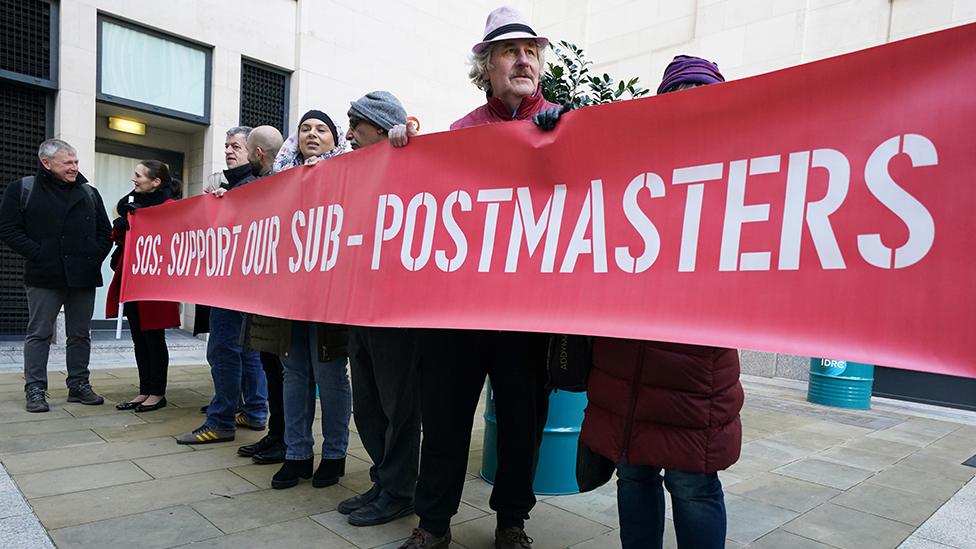
- Published10 January 2024
- Published10 January 2024
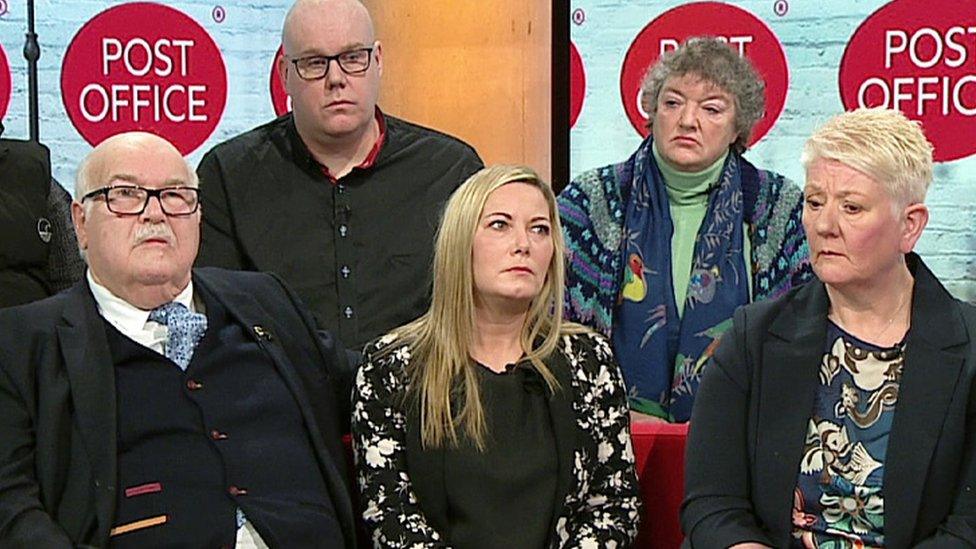
- Published10 January 2024
